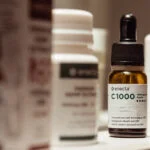It is very common for those battling addictions to avoid professional treatment, due to the expectancies that rehab is not a necessary option, or that it is reserved for only the most severe addictions. Sadly, these misconceptions are continually perpetuated through outdated and stereotypical depictions of rehab online and on screen, but they are in actuality, far from the truth of rehab.
Here at OK Rehab, we know that these myths surrounding rehabilitation are just that – myths. We know from our own experience that rehab can be a place for anyone facing any level of addiction, that it is the most effective treatment option, and that it is definitely no place to fear – as many TV shows and films will have you believe.
We have seen lives changed by rehab – our own included – and have witnessed thousands of clients reach successful recoveries and go on to live full, substance-free lives. We know better than anyone what is best for those battling drug or alcohol addictions, and rehab is just that.
So, if you or someone you know is dealing with an addiction, call us today on 0800 326 5559, email us, or fill out our online form to begin an enquiry.
With our help and guidance, you could soon be placed in a suitable drug and alcohol rehab in Leatherhead, and on your way to a full recovery.
Our philosophy

Here at OK Rehab, we believe that everyone deserves treatment, no matter their circumstances.
To uphold this, we promise to never discriminate or refuse clients based on the nature of their addiction, their race, ethnicity, age, gender identity, sexuality or class. We work hard to ensure that every person battling a substance or behavioural addiction receives the treatment and quality of care that they deserve and that who they are never interferes with that.
We are also committed to listening to feedback. If you believe that we are not upholding these values, please let a member of our team know, and we will try our very best to improve.
What treatments are there for an addiction?

There are many treatments out there to choose from, but it is not as simple as choosing one or the other. Usually, you will experience many different forms of treatment that combine to cover all bases of your addiction.
You will most likely undergo a drug and alcohol detox, an obvious treatment for addictions and one that will usually take place at the beginning of your journey. Though this can be a daunting step, it is a highly necessary one if you wish to continue with other treatments.
A detox will help your body rid itself of the substance you have used, and the toxins left behind by said substance. It may take only a few days, but detoxes can also last up to several months, depending on factors of you and your addiction such as your age, the substance you have used, and the method of abuse (snorting, injecting, smoking, etc.).
During your detox, you may experience a number of withdrawal symptoms, including mood swings, fatigue, headaches, nausea, muscle pain and dizziness. These are very common and expected during this phase, so don’t panic. A doctor should be on hand at your chosen rehab to prescribe medication that can ease the symptoms if this is necessary.
A detox is not a substitute for any other treatments such as therapy, and should be done as a first step to the rest of your treatment, rather than in isolation.
As for therapy and counselling, there are many different methods that you may encounter. What you are recommended to participate in will be determined by your personality and certain aspects of your addiction, but the most common forms include Individual therapy, group therapy, family therapy, art therapy, addiction counselling, Cognitive Behavioural Therapy (CBT), Dialectical Behavioural Therapy (DBT), Acceptance and Commitment Therapy (ACT), and Motivational Enhancement Therapy (MET).
There are also some forms of treatment that do not fall under this therapy division, such as contingency management, which incentivises good and desired behaviour with prizes or money.
What treatments will I receive for my addiction?

The specific treatments you receive will be decided by two assessments, so we cannot at this time detail exactly what you receive. However, it is highly likely you will still require a drug and alcohol detox and will encounter one or more of the therapies mentioned above.
The assessments will look at you and your character, to help us determine what types of therapy you will thrive in (e.g. group therapy is not always suitable for some clients, so instead their treatment plan would focus more on one-on-one therapy sessions). We will also look at aspects of your addiction, such as the length of time you have used for, the substance or multiple substances you have used, the method of abuse, and the general severity of your addiction.
This information will allow us to decide what will work best for you, and plan your treatments accordingly.
The importance of bespoke treatment

Here at OK Rehab, we believe in giving our clients the best possible treatment.
By performing the earlier mentioned assessments, we ensure that we offer just that – in the form of personalised treatment plans.
This bespoke treatment means that our clients don’t have to waste their precious time, money or effort going through multiple treatments that may not be as beneficial for them as it is for others. Instead, you receive treatment that is proven to work for you and your specific needs and preferences, meaning your chances of recovery are decidedly higher.
Don’t wait to reach out
The time to reach out is now.
The earlier we catch an addiction, the easier it usually is to treat, and the better and quicker your recovery can be. The longer you wait, the more damage is done to your body – damage that may become irreversible if left unchecked and untreated – and the more at risk you are putting yourself, and any loved ones who care about you.





